The actor-turned-agent has represented some of Hollywood’s biggest stars. But his life’s message isn’t about glitz. It’s about God
It would be easy to mistake Femi Oguns’ confidence for arrogance. “Born to make history” is the first line of his biography on X. But listen closer, and you’ll realise he isn’t boasting about his own abilities. He’s boasting in the one who gave him those abilities.
“Celebrate your own uniqueness….celebrate who you already are.” This is the induction Oguns gives the eager students who sign up for his Identity School of Acting. They’re receiving the same pep talk as the alumni who have gone on to star in Doctor Who, Black Mirror and The Hunger Games. But Oguns’ message isn’t self-help gobbledegook – he isn’t running some kind of dodgy cult. It’s actually a principle lifted straight out of the first chapter of the Bible – that God has created each one of us in a unique and beautiful way, if only we would truly believe it.
Oguns’ life message seeps out of him, whether he’s speaking to the A-list talent he manages or at the star-studded Premier Gospel Awards, where he was recognised for his “special contribution to culture”. Within seconds of taking to the stage at London’s prestigious Royal Festival Hall to accept the award, Oguns was in full flow. “I’ve come to realise that God does not make mistakes, and he hasn’t made a mistake when it comes to creating each and every one of us,” he said, as hearty “amens” rang out across the auditorium. “God has knitted us. He’s created us to absolute perfection. So, when I look back, I realise it’s not my hands, it’s the hands of God, and I just want to thank him.”
Oguns hasn’t just trained some of the biggest actors in Hollywood, he now manages them through his agency. The stars he’s worked with include Letitia Wright (Black Panther) and John Boyega (Star Wars). He’s received an MBE and a UK Film Council breakthrough award. As the founder of both an acting school and a talent agency, he is in a powerful and privileged position.
Oguns was brought up in a mixed Church of England and Catholic home. His Catholic mother “won” the argument with his father over which church to attend, and Oguns has fond memories of being an altar boy (“I thought I was a superhero character with the white gown!”). He won’t be drawn on which denomination he subscribes to nowadays. “I don’t like to put a label on it. For me, my faith in God is not too much about the religion. It’s about the relationship.”
You switched careers from being an actor to working as an agent. I read that was because of a “God moment”. Is that right?
Yeah, it was an absolute God moment. It just came out of nowhere. My career was at a high point, really progressing. I’d just played the lead alongside Helen Mirren in Prime Suspect and done a film with Dustin Hoffman.
But, at that point, God whispered in my ears and said: “Femi, I want to use you for something else.” And I was like: “What are we talking about here?” He said: “I’m going to use you to help to bring people to me through this medium – which is acting that you love so much – and you’ll be better served to represent them than being in front of the screen.”
That was very, very hard for me to take at the time, I’m not going to lie. I mean, fame – well, it wasn’t even fame, but my little definition of what fame was back then – it was great. All the adulation you’re getting and, all of a sudden, now you have to lean on your spiritual side – that you hadn’t invested in as much as you could have done. But I listened to it, and I haven’t looked back.
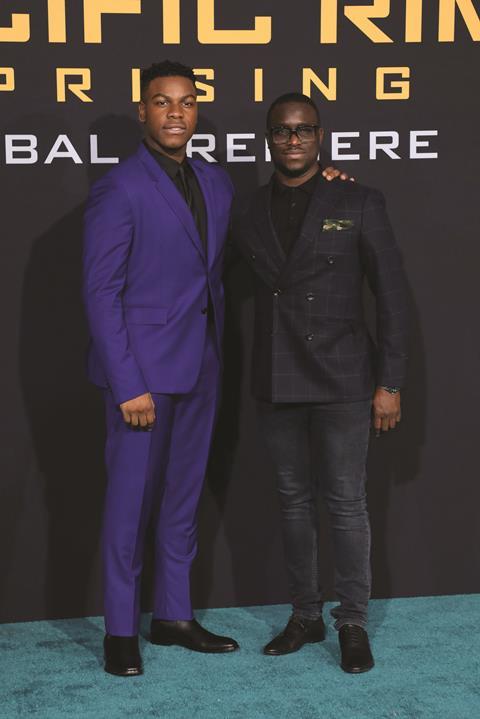
What do you mean by “God whispering in your ear”? What does it mean to hear God speak?
I heard a voice. If we really listen closely, we’ll realise that sometimes our conscience could be God speaking, and I honestly believe it was. Because when I really listen to the purity of that voice, I know that it’s coming from an absolutely different source [to me]. The essence was too pure for me to take total ownership of it.
That voice led you to start the Identity School of Acting, a drama school which now has branches in London, Manchester, Birmingham and Los Angeles. How did it go from a dream to a reality?
For me, it’s all about having that blind faith and self-belief.
It’s so funny when people say: “How did all this happen?” and you tell them: “It was God!” And they’re like: “OK, cool, but how else?” And I’m like: “Well, you’ve asked, and I’ve told you, and you won’t accept that, so let me try and put some kind of worldly stamp on it – but you’re gonna be missing a great deal.”
If I can rest my head on my pillow at night knowing money was not my god, I’m happy
What I’ve come to realise is that God will give you a certain amount, but then he’ll expect you to do the rest. I don’t believe God just hands it to you and says: “This is it. I’m going to bless you.” He requires you to do some of that work too. And that’s how it was.
The blind faith that I had and the investment that God placed in me was what gave me the extra energy during those hard times to go: “You know what? I can do this.”
When I look back at what I’ve done, I realise I had to be working on faith, and it had to be something else that was helping me. And because I heard that voice and recognised it right from the beginning, maybe that’s what made me continue to go, go, go. I’ve always been that sort of person. I don’t see anything but the goal at hand. I don’t entertain any doubts. It’s that blind belief that you can become whatever you want to become. As long as you’ve got belief in God and you’re willing to invest in it and celebrate it and not apologise for it, then God will give you the ammunition to overcome anything.
Tell me about how the school came from your desire to serve under-represented groups.
Identity has been going for 21 years, I’m proud to say. Things have improved since, but it was a well-known fact that in major drama schools, there was a very small percentage of actors from BME [Black and Minority Ethnic] backgrounds. For me, rather than joining the chorus of complaints, it was about doing something about it. I’ve always been somebody who is encouraged and motivated by pioneering and doing things that nobody else has done. I had to address an issue that was pressing.
You’re hearing this from a Nigerian, and we’re a different breed because our belief in ourselves is so, so high! But it does take a certain character. You have to believe, as it says in the Bible, that you’ve been made in the image of God. We need to celebrate the fact that we are spiritual, cocooned in the body that we’re in, but that beautiful nature we’ve got, the goodness that we exhibit, that’s what I work with, and that’s what I celebrate, and that’s what I wanted to do with the drama school: to create a safe haven for actors from all different backgrounds to be able to find themselves, celebrate themselves and elevate each other.
You previously observed a “massive shift” from casting directors not considering Black actors for certain roles, to now, you say that “diversity” has become a bit of a buzzword and the industry is actively courting Black people. Is that still the case?
Absolutely. I was only one of two [Black actors] in my drama school, so it was important for me to be able to give people that would often be overlooked an opportunity. But right at the beginning [when Identity started] 99 per cent of our student body were Black. I realised that I was basically mirroring the pain of isolation that I experienced at drama school, and I was doing a massive disservice to the students. Because how are you going to navigate this world if you’re not able to mix with other people?
God will give you a certain amount, but then he’ll expect you to do the rest
That’s why I had to take a step back and think: How am I going to have a universal school? I’m proud to say that now we have a wonderful, diverse body of Black, Middle Eastern, white, Asian and everything in-between, where they’re all nourishing, elevating, pushing and educating one another, which is a wonderful, beautiful thing. There’s no place like it.
You don’t just train the talent through the drama school, you then represent many of them through the Identity Agency Group, and your clients include some major names, including John Boyega (Star Wars). Tell me more about that.
I remember being in LA, parked in this open-air car park, and I said to John Boyega: “We can be agents for Christ. Imagine that. We can go into this dark world and, little does the devil know, but we’re recruiting people to Christ through the work that we do and the people that we work with.”
That’s what, for me, validated the progression from creating a drama school to creating an agency. The drama school will nurture and develop the talent, and the agency will represent them. You just hope that once you’re able to give these beautiful souls the opportunity to celebrate their talents – that come from God – they will celebrate it in the right way.
It’s very important that we understand that, as individuals, God has given us freedom to make our own decisions, and that’s what I do as an agent. I present [clients] with opportunities, and I hope that, through that nurturing and developing process, they will make the right decisions.
How does being a Christian affect the way you do your job?
I work with a really strong moral principle that is aligned with my faith and belief in God. That means if I see a client going in the wrong direction – and I’ve lost a lot of clients because of this – I’ll have to say something. If clients end up leaving me because of that, it’s really up to them. As long as I can rest my head on my pillow at night knowing that money was not my god, I’m very happy.
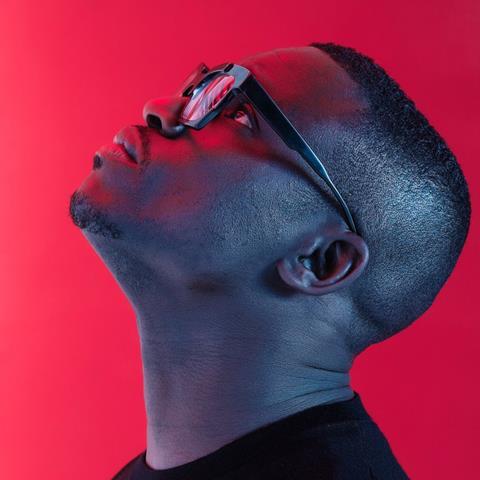
What does “a client going in the wrong direction” mean?
If fame isn’t handled the right way, you’re in the palms of the devil. If you’ve been given a platform that can influence the masses, it has to be dealt with, with the highest level of responsibility.
When you’re suddenly in a very privileged position whereby you’ve got all these people – whether they admit it or not – worshipping you, it can get into your system. Not all. I’m fortunate to have some people that I represent who have done extraordinary, groundbreaking stuff who have been a real treat to work for because their principles and faith beliefs are in the right place, and it’s carried them through. But there have been a lot of people that I have had the misfortune of representing, where fame has got the better of them. The greed, the ego, the arrogance comes into play.
It’s almost like you see a child that’s lost. All of a sudden, they now feel as though they’re accepted and loved. But the problem is, they’re looking for love in the wrong areas, and they’re also forgetting where this came from and how quickly it could be taken away.
I saw a video on your website where you urge young actors to “own the gift” that is within them. I can see you instilling confidence, self-esteem and belief into these young people. But it’s deeper than that, because it’s coming from your Christian faith, isn’t it? You are effectively preaching to them that they are unique because they are created in God’s image.
Absolutely. Thanks for spotting that. That video was setting a precedent. It was their first induction, so they know exactly what they’re coming into. And it’s funny, I often have to say, as my little disclaimer: “Listen, I’m about to talk now, but you haven’t entered into a cult or anything like that!” I try and tell people we are all gifts. And it’s exactly what it says in the Bible – that God created us in our mother’s womb. He knitted us to absolute perfection. It’s only when we allow this world to interfere with that, that we start to conjure up anxiety and jealousy and we start to draw comparisons to one another. Really and truly, beauty is from within. And the more we invest in that, the more it gives God that place to shine his light.
To hear the full interview listen to Premier Christian Radio at 8pm on Saturday 9 November or download ‘The Profile’ podcast from premier.plus



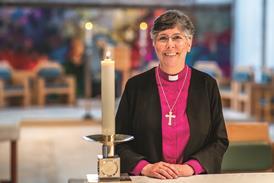
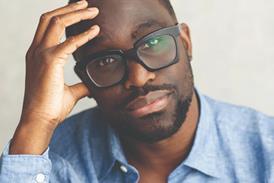
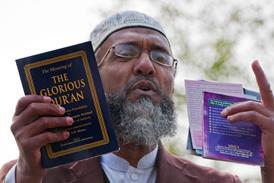
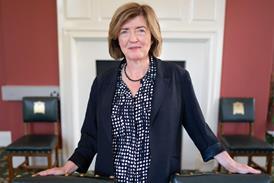
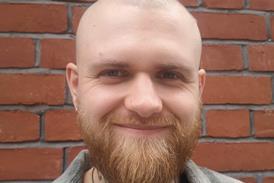
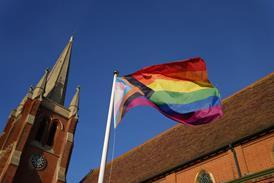
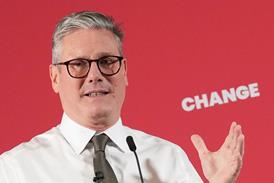






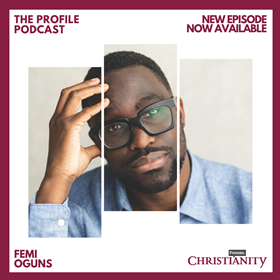

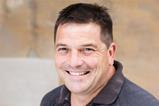
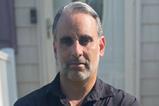




















No comments yet